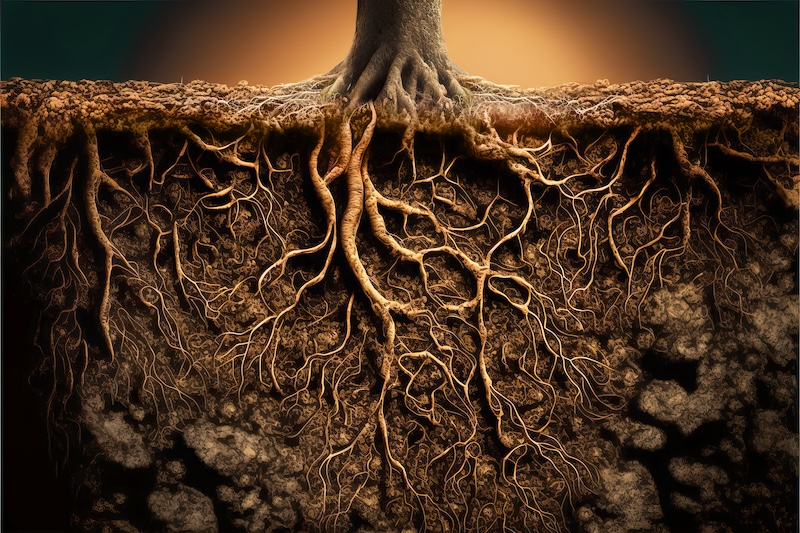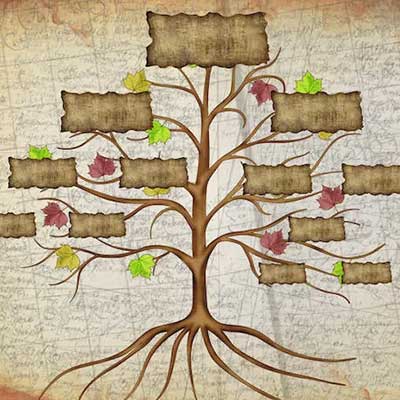- Home
- How to Research Family History
How To Research Family History
Are you curious about how to research family history? This article will provide valuable tips and techniques for uncovering your family's intriguing history. From tracing your ancestors' footsteps to documenting findings, this guide offers everything needed for a fascinating family research journey. Whether this is your first genealogy experience or not, this article equips readers with essential steps for exploring their family tree and uncovering fascinating tales from its past ancestry - be ready for an exciting adventure that will bring closer to your roots as you gain more significant insights into its legacy!
Starting Up
You'll need to understand its purpose before beginning any genealogy research project. Are you hoping to discover your family's origins, find long-lost relatives, or gain more information about ancestors' lives? I know why you're conducting your search so that you can guide your efforts and help guide their completion more efficiently.
Before Beginning Research
Before you begin doing extensive research, you'll need to gather basic information on your immediate family members, including names, birthdates, marriage dates, and any other pertinent details you already have. This will serve as the cornerstone for your efforts and allow you to build upon what already exists.
Clarifying Research Goals
Setting clear research goals will keep your efforts more purposeful and manageable, keeping you from becoming overwhelmed in your research efforts. Please take a look at what specific questions, ancestors, or branches you wish to research first or what research questions have come up in the past year that need answering. Clear goals make research more manageable!
Organizing Your Research
Create a Research Plan
A research plan can be essential to staying organized and efficiently using your time. You can start by listing questions you want to be answered and information you want to be found, then break your research down into smaller tasks or objectives to stay on course during its completion. This process will keep your process on course and keep any potential distractions under control.
Maintaining a Research Log
Maintaining a research log is a must to keep organized. Your log can take the form of anything from a notebook or spreadsheet: record sources consulted, information uncovered, future tasks or ideas, and regular updates that save time and avoid duplicative efforts.
Utilizing Technology and Software Solutions
Today's digital world makes using technology and software invaluable for genealogy research. Various software programs and online platforms dedicated to genealogy can assist with organizing and analyzing your search while making accessing large amounts of data simpler, visualizing family connections, and working collaboratively with other researchers easier.
How To Research Family History
Primary and Secondary Sources of Information are essential factors when making decisions about education.
Understanding the Differences
Primary sources in genealogy research refer to documents created during an event by those with firsthand knowledge, such as birth, marriage and death certificates, original census records, personal diaries, or letters written directly by someone involved. Secondary sources refer to records created after an event has happened that contain interpretation or memory-based data such as transcriptions, indexes or published family histories compiled afterward.
How to Research Family History by Access Birth, Marriage and Death Records for Assistance
Birth, marriage, and death records are essential primary sources for genealogy research. These records contain vital details about your ancestors, including names, dates, locations, and any additional pertinent information that can help establish parentage, reveal maiden names during marriage, or provide insights into an individual's final days. Birth records provide vital evidence about parentage, while marriage and death records provide invaluable details of an individual's final days. They may be obtained from government agencies, churches, or online databases.
How to Research Family History by Exploring Census and Federal Records
Census records can be an invaluable asset when researching your family history. They accurately depict individuals and families at certain times in history. They can reveal information such as relationships, ages, occupations and places of birth. The U.S. Federal Census is taken every ten years and provides American genealogy researchers with invaluable data; other countries also keep similar records that can be accessed online or through archives and libraries.
How to Research Family History by Analyzing Military and Service Records
Military records provide invaluable insight into your ancestors' lives while also helping confirm or reveal hidden details. They may include enlistment records, pension applications, discharge papers, photographs or letters detailing an individual's military service, ranks, battles participated in, awards received, or awards won.
How to Research Family History by Examining Immigration and Naturalization Records
If your ancestors immigrated to a foreign land, immigration and naturalization records can provide invaluable clues in reconstructing their journey. Such records may include passenger lists, ship manifests, immigration documents, and naturalization papers that offer insight into your ancestor's countries, family members, and arrival dates.
How to Research Family History by Researching Land and Property Records
Land and property records provide invaluable insights into your ancestors' lives, providing an understanding of their socioeconomic standing. Such records often include deeds, grants, and mortgages that detail land ownership transfers and descriptions. Land records may often be found at local government offices or historical archives.
How to Research Family History by Accessing Church and Religious Records
When civil records are limited or nonexistent, Church and religious records can be a treasure chest for genealogists. Parish registers, baptismal records, marriage licenses, and burial records provide invaluable details on your ancestors' religious affiliation and key dates in their lives. Many churches keep such archives; some have even made digital versions available online.
How to Research Family History by Examining Newspaper and Obituary Records
Newspapers and obituaries provide vital details about your ancestors that may not be found elsewhere, including birth announcements, marriage notices, obituaries, and other news articles that paint an in-depth portrait of their lives. Local libraries and historical societies may even have digitalized versions of newspapers from different periods and locations in online databases that offer access.
Interviewing Family Members
Prepare a Set of Questions
Before interviewing family members, compose a list of questions to guide the conversation. Explore traditions, stories, memories, and any known ancestors before asking open-ended queries that encourage storytelling and provide opportunities for valuable insights.
Engage in Active Listening Activities
Practicing active listening can ensure you capture all relevant details at an interview. Show genuine interest in answering follow-up questions and encourage family members to share stories and memories - this allows for more personal accounts with rich details and perspectives that cannot be found in documents alone.
Record and Document Details.
While conducting your interview, it's essential that you carefully document all the information shared by family members. Use audio/video recording equipment, write notes or utilize apps explicitly designed for interview documentation - always ask permission first and respect their privacy and comfort levels when recording interviews.
Validate and Cross-Verify Details
After conducting an interview, take time to double-check and cross-verify all information provided by family members. Check this information with existing records, other interviews and additional research as it's vital to ensuring accuracy and identifying any discrepancies or conflicting accounts that might emerge during this step.
How To Research Family History Step-by-Step
Online Research of various kinds has become popular.
Genealogy websites are an invaluable source of information for family historians. These platforms provide access to databases with digitalized records, family trees, historical documents, and user-generated content such as Ancestry.com, FamilySearch.org, MyHeritage.com - providing invaluable clues and connections in their search efforts.
Exploring Online Archives and Libraries
Genealogy websites alone cannot provide all the historical records and resources you'll ever need; online archives and libraries offer even more. Many national and local archives offer digitalized collections with searchable catalogs. In contrast, libraries may provide access to historical books, newspapers, maps, and photographs that could shed new light on your family history. Take advantage of these digital resources for unique records that shed further insight into your family tree!
Join Genealogy Forums
Genealogy forums provide a friendly environment where individuals can connect, ask questions, and share research findings. Joining such forums may offer guidance, tips, and insight from experienced genealogists and the chance to connect with potential family members researching similar family lines.
Leveraging Social Media and Online Communities
Social media and online communities devoted to genealogy can be invaluable tools in your family research journey. Join genealogy groups on platforms like Facebook, Twitter, and Reddit, where you can ask questions, share discoveries, and network with fellow genealogists. Many community members have diverse expertise that may provide assistance or resources you have yet to consider otherwise.
DNA Test and Genetic Genealogy Research
Understanding DNA Testing
DNA testing has revolutionized genealogy. It allows individuals to discover ancestral connections that may not have been documented in traditional records, provide insights into your ethnic origins, identify biological relatives, verify or disprove ancestral ties, and prove or disprove ancestral claims. I want you to know that knowing its basics will help you make educated decisions when using this tool in your research.
Select the Appropriate DNA Test
Autosomal DNA, Y-DNA, and mtDNA tests are among the many DNA tests available for genealogy purposes, each offering different strengths and limitations when choosing one for your research goals. When selecting your tests, it is essential to consider your ancestral lines or questions.
Interpreting DNA Results
Interpreting your DNA test results can be complex if you're new to genetic genealogy, so take the time to familiarize yourself with its terminology and concepts, explore any tools provided by your testing company, and seek guidance and support from genetic genealogists or online communities when understanding them.
Collaboration With DNA Matches
One of the most remarkable aspects of DNA testing is discovering genetic relatives who share portions of your DNA. Making contact with these matches can help expand your family tree, learn more about your shared ancestry, and even uncover unexpected pieces of family history. Reach out to your DNA matches, share your research findings, and see if working together might be an option in piecing your family puzzle.
Explore Local Archives and Libraries
 Explore Local Archives and Libraries
Explore Local Archives and LibrariesResearching the Local History Archives and library collections provides a treasure trove of historical knowledge that may be limited online. Unlock more insight into your ancestor's communities by perusing sections or collections dedicated to local history; look out for histories, city directories, maps, and photographs, as these may provide further details into the daily lives of your ancestors.
Accessing Local Vital Records
Local vital records, including birth, marriage, and death certificates, are usually maintained at local government offices or archives. These documents can provide essential details about your ancestors, such as names, dates, and locations - an invaluable source of data that may need to be more readily available online and which can help fill gaps in your research. Visiting these archives allows access to records not available online and helps complete incomplete genealogy projects.
Exploring Special Collections
Archives and libraries often house special collections that can provide invaluable assistance in genealogical research. Such collections could include historical newspapers, family papers and correspondence, diaries, business records, and much more - giving insight into your ancestor's lives while unveiling their hidden stories and details. Exploring these special collections may yield untold stories and details from their lives that otherwise wouldn't surface.
Consulting Librarians and Archivists
Please take advantage of librarians and archivists when visiting local archives or libraries, using their knowledge to help your research. These professionals possess extensive expertise about their collections, offering suggestions about specific resources or interpreting documents or providing tips for finding information you're searching for.
Utilizing Social History and Context
Examine Social and Historical Events
Understanding the social and historical background of your ancestors' lives will add depth and perspective to your research, giving a richer picture of their experiences. Gain an appreciation of significant social and historical events during their lives, such as wars, economic changes, or social movements that could have impacted them.
Investigate Economic and Occupational History
Exploring your ancestors' economic and occupational history can give insight into their daily lives, struggles, and achievements. Research which industries were prevalent in their communities, which jobs they held, and any economic difficulties they may have endured - all this information will give a complete picture of your family history.
Explore Migration and Settlement Patterns
Investigating your ancestors' migration and settlement patterns can provide invaluable insight into their origins and journeys. You can study your family lines' migration history for any evidence of migration within them and examine why it occurred in the communities where they settled to understand better opportunities or challenges they might have encountered during settlement.
Search Community and Organization Records in Search for Records of Community and Organization
Researching community and organization records can give insight into your ancestors' lives. Search for records related to schools, churches, fraternal organizations, and other community groups where your ancestors were active - membership lists, meeting minutes, or photographs may provide unique glimpses into their engagement in their local communities.
Preserving and Documenting Finds
How to Create a Genealogy Database
An essential step in organizing and preserving your research findings, creating a genealogy database is an integral component of organization and preservation. Select an online or software platform suitable to your needs and start creating your family tree, documenting key details about individuals, such as names, dates, relationships, and sources for each one as you go along. Update it as discoveries surface - keep track of when new information arrives!
Citing Sources and Citations
Documenting sources and citations is crucial to genealogy research. Could you make a note of where you get each piece of information you consult - such as vital records, census records, books, or websites? Standardized citation formats like the Chicago Manual of Style or Genealogical Proof Standard ensure consistency and accuracy when documenting sources and citing them correctly.
Organize both Physical and Digital Files
As your research advances, both physical and digital files must remain organized. Create folders or binders for printed documents and photographs stored in acid-free materials to avoid deterioration; for digital files, create a logical folder structure using consistent file naming conventions while regularly backing them up to prevent loss.
Sharing and Collaborating With Others
Genealogy can be an engaging joint endeavor, and sharing your findings can lead to unexpected discoveries and relationships. Consider sharing them with family members, distant relatives, or fellow genealogists with similar interests; online and social media groups offer collaboration and information exchange platforms.
Overcoming Challenges When Dealing With Missing or Incomplete Records
One of the most significant challenges of genealogy research is dealing with incomplete or missing records. Not all records have survived over time; others may have been destroyed or lost entirely. When this occurs, alternative sources such as newspapers, military records, or local histories should be explored to fill any gaps left by destroyed or lost documents. Creative thinking combined with thorough research can often yield unexpected discoveries!
Navigating Name Variations and Spelling Changes
History shows us that names were often written and recorded differently, creating variations and challenges when conducting genealogy research. When encountering name variations, consider phonetic similarities, cultural norms, regional dialects, phonetic similarities, and spelling variations so you don't miss potential matches or records. When making searches, include all possible variations so no records go undetected!
Conquering Language and Translation Barriers
Researchers with ancestry from non-English-speaking countries often encounter language and translation barriers when working on their family tree. Contact language experts, translation services, or online communities for support if foreign records require translation assistance. Furthermore, learning the necessary vocabulary in each foreign language could prove invaluable.
Addressing Privacy and Ethical Considerations
As you delve deeper into your family history, you must consider privacy and ethical concerns when researching it. Always secure consent before sharing personal data from living relatives; address sensitive or traumatic incidents with empathy and care; follow ethical guidelines, including respecting the intellectual property rights of others.
Researching your family history can be an enjoyable and fulfilling journey. By understanding your purpose, organizing your research, using various sources and methods, and documenting findings, you may reveal fascinating details of ancestors’ lives that were long hidden away until now. With determination, patience, and an adventurous spirit, you will create a wonderful tapestry of memories for future generations to cherish and savor.















